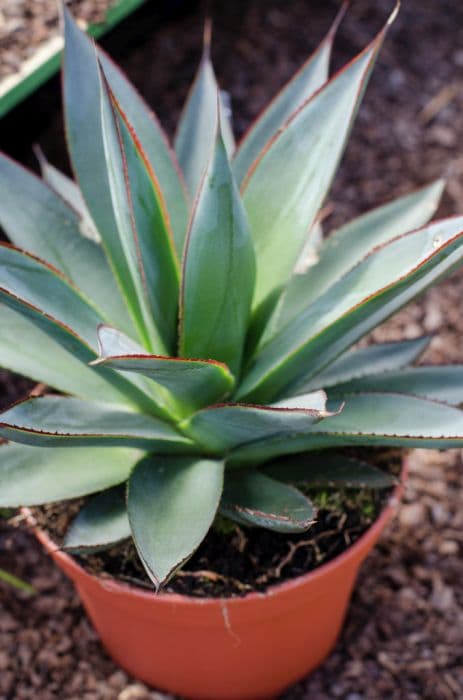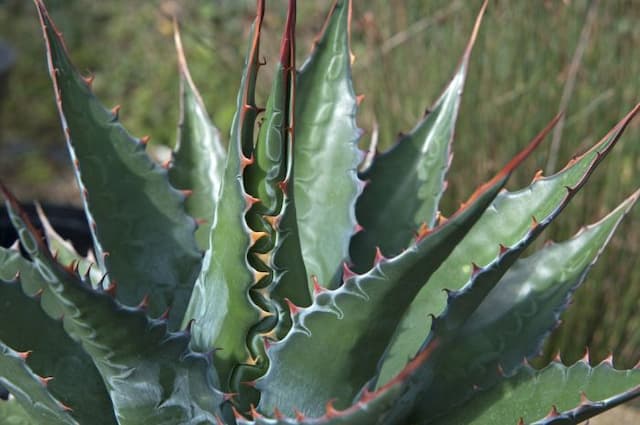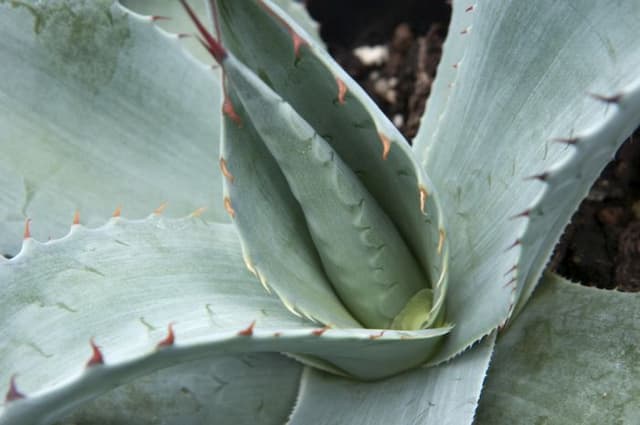Evergreen Solomon's Seal Disporopsis pernyi

ABOUT
Disporopsis pernyi, commonly known as evergreen Solomon's seal, is a perennial plant that is well-regarded for its elegant and graceful appearance. The plant sports glossy, lance-shaped leaves that gracefully arch along its stems, creating a lush, verdant display. These leaves are deep green in color and provide a striking backdrop for the plant's delicate flowers. The blooms of the evergreen Solomon's seal are noteworthy; they dangle from the leaf axils in charming, bell-shaped clusters. Often white, these fragrant flowers sometimes exhibit subtle greenish or purplish hints, adding to their allure. Following the flowering season, the plant produces berries that transition in color from green to an eye-catching hue of blue to black as they mature. The plant is appreciated not only for its ornamental features but also for the evergreen foliage that provides year-round interest in the landscape or garden setting. Due to its attractive appearance, Disporopsis pernyi is a favored choice for shaded or woodland garden areas where its foliage and flowers can be displayed to full effect.
About this plant
 Names
NamesFamily
Asparagaceae
Synonyms
Evergreen Solomon's Seal, Perny's Disporopsis
Common names
Disporum pernyi, Disporum cantoniense var. pernyi.
 Toxicity
ToxicityTo humans
Disporopsis pernyi, commonly known as Evergreen Solomon's Seal, is not widely recognized for having toxic properties to humans. There is limited information available on its toxicity; therefore, caution should be exercised as with any plant not confirmed to be edible. If the plant were toxic, potential symptoms of poisoning might typically include gastrointestinal distress like nausea, vomiting, or diarrhea, but these are not specifically reported for Disporopsis pernyi in humans.
To pets
Evergreen Solomon's Seal, scientifically known as Disporopsis pernyi, has no well-documented cases of toxicity in pets such as dogs and cats. However, as is the case with many plants where comprehensive toxicity studies may be lacking, it is prudent to prevent pets from ingesting this plant. If it were found to be poisonous to pets, symptoms could potentially include vomiting, diarrhea, or drooling, but these symptoms are not specifically reported for Disporopsis pernyi.
 Characteristics
CharacteristicsLife cycle
Perennials
Foliage type
Evergreen
Color of leaves
Green
Flower color
White
Height
1-2 feet (30-60 cm)
Spread
1-2 feet (30-60 cm)
Plant type
Herb
Hardiness zones
7
Native area
China
Benefits
 General Benefits
General Benefits- Aesthetic appeal: Disporopsis pernyi, commonly known as the evergreen Solomon's seal, adds visual interest to gardens with its arching stems and bell-shaped flowers.
- Shade tolerance: This plant is well-suited for shaded areas where other plants might struggle to thrive, making it an excellent choice for woodland gardens.
- Low maintenance: Once established, the evergreen Solomon's seal requires minimal care, which is ideal for gardeners who prefer less demanding plants.
- Ground cover: With its spreading nature, it can serve as an effective ground cover, helping to reduce weed growth and soil erosion.
- Seasonal interest: It provides seasonal interest with its white spring flowers and sometimes blue-black berries in the fall, offering diverse visual changes throughout the year.
- Wildlife attraction: The flowers of the evergreen Solomon's seal can attract pollinators like bees, while the berries may appeal to various bird species.
- Companion planting: It can be planted alongside other shade-loving perennials to create a layered, textured garden design.
 Medical Properties
Medical PropertiesThis plant is not used for medical purposes.
 Air-purifying Qualities
Air-purifying QualitiesThis plant is not specifically known for air purifying qualities.
 Other Uses
Other Uses- Evergreen groundcover: Due to its lush foliage, Disporopsis pernyi, also known as Chinese fairy bells, is often used to provide year-round ground cover in shaded garden areas, contributing to soil stabilization.
- Naturalizing woodland gardens: Gardeners can utilize Chinese fairy bells to create a naturalized setting within woodland gardens, which blends with other native flora.
- Accentuating shaded paths: Planting Chinese fairy bells alongside shaded garden paths can create a visually appealing border that thrives in low light conditions.
- Companion planting: Chinese fairy bells can be planted alongside ferns and hostas to create diverse textures and improve the underplanting aesthetic in shaded areas.
- Container gardening: They can be grown in containers on shaded patios or balconies where their foliage adds greenery throughout the year.
- Butterfly and insect habitat: The plant can help encourage a micro-habitat for insects and butterflies in a garden, providing them with shelter.
- Erosion control on slopes: Their root systems can help prevent soil erosion on sloped areas with shade, aiding in slope stabilization.
- Boosting biodiversity: When included in a diverse planting scheme, Chinese fairy bells add to the overall biodiversity of a garden space, supporting ecosystem health.
- Ornamental value: Their delicate, lantern-like flowers offer subtle ornamental value to garden landscapes, particularly appealing in informal and naturalistic garden designs.
- Moisture Indicator: The plant can serve as a natural indicator of soil moisture levels, with lush growth suggesting adequate moisture while wilting may signal the need for watering.
Interesting Facts
 Feng Shui
Feng ShuiThe plant Disporopsis pernyi, commonly known as the Evergreen Solomon's Seal, is not used in Feng Shui practice.
 Zodiac Sign Compitability
Zodiac Sign CompitabilityThe Evergreen Solomon's Seal is not used in astrology practice.
 Plant Symbolism
Plant Symbolism- Evergreen Growth: Disporopsis pernyi, commonly known as Evergreen Solomon's Seal, remains green throughout the year, symbolizing enduring life and constancy.
- Resilience: Its ability to thrive in shady areas represents resilience and the ability to prosper in adversity.
- Renewal: The perennial nature of Evergreen Solomon's Seal signifies renewal and the cyclical nature of life, rebirth each season.
 Water
WaterThe Evergreen Solomon's Seal requires consistent moisture and should be watered thoroughly once the top inch of soil feels dry. A general guideline is to provide the plant with about 1 inch of water per week, whether from rainfall or manual watering. During the spring and summer growing seasons, you may need to water the plant a couple of times per week, especially if the weather is particularly dry or hot. In cooler months, watering can be reduced. Always avoid overwatering, as this can lead to root rot.
 Light
LightEvergreen Solomon's Seal thrives best in partial to full shade. It is ideally placed in a spot that mimics its natural woodland habitat, receiving filtered sunlight or a few hours of morning sun followed by shade for the rest of the day. Avoid exposing the plant to direct afternoon sun, which can scorch its leaves.
 Temperature
TemperatureEvergreen Solomon's Seal fares well in a range of temperatures typical of a temperate climate. It can survive minimum temperatures of around 5 degrees Fahrenheit and is comfortable up to about 75 degrees Fahrenheit. The ideal temperature for robust growth is between 60 and 70 degrees Fahrenheit. It is cold hearty and can withstand winter conditions well.
 Pruning
PruningPruning of the Evergreen Solomon's Seal is typically done to remove dead or damaged foliage and to maintain a tidy appearance. It requires little pruning, but any cleanup of dead leaves should be done in late winter or early spring before new growth starts. Pruning is infrequent, primarily after the plant has finished flowering or when leaves brown in the fall.
 Cleaning
CleaningAs needed
 Soil
SoilEvergreen Solomon's Seal thrives in well-draining, rich, organic soil with a neutral to slightly acidic pH of 6.0 to 7.0. A mix containing compost, pine bark, and coarse sand or perlite will ensure proper drainage and nutrient retention. Mulch can be added to maintain moisture levels.
 Repotting
RepottingEvergreen Solomon's Seal should be repotted every two to three years to refresh the soil and accommodate root growth. It’s a good practice to repot in the spring before new growth begins.
 Humidity & Misting
Humidity & MistingEvergreen Solomon's Seal prefers high humidity levels, ideally around 60% or higher. Consistently high humidity supports its lush foliage and health.
 Suitable locations
Suitable locationsIndoor
Keep in bright, indirect light and high humidity.
Outdoor
Plant in shaded area; protect from direct sun.
Hardiness zone
7-9 USDA
 Life cycle
Life cycleEvergreen Solomon's Seal (Disporopsis pernyi) starts its life cycle as a seed, which, when sown in the soil and given the right conditions of moisture and temperature, germinates and sends out roots and a shoot. This seedling grows into a juvenile plant with characteristic lance-shaped leaves unfurling along its stem. As it matures, the plant develops rhizomes, which are horizontal underground stems that allow for vegetative reproduction and new shoots to emerge in subsequent growing seasons. During spring, it produces small, bell-shaped white flowers, which are often hidden beneath the foliage and emit a delicate fragrance, attracting pollinators for sexual reproduction. Following pollination, the flowers develop into small berry-like fruits containing seeds, completing the reproductive cycle. With each season, the clump of the Evergreen Solomon's Seal can become denser as it spreads slowly through its rhizomes, creating larger patches in suitable woodland environments.
 Propogation
PropogationPropogation time
Spring to early summer
Propogation: The most popular method of propagation for Disporopsis pernyi, commonly known as Evergreen Solomon's Seal, is by division of rhizomes, typically carried out in the fall or early spring when the plant is dormant. To propagate by division, carefully dig up an established clump and gently separate the rhizomes, ensuring each division has at least one shoot and a portion of root. Replant the divisions at the same depth they were originally growing, spacing them approximately 12 inches (30 centimeters) apart to allow enough room for growth. The soil should be well-drained but moist, rich in organic matter, and the site should mimic the plant's natural conditions – partial to full shade. Water the newly planted divisions thoroughly and maintain consistent moisture until they are well established. This method of propagation allows the gardener to increase their stock of Evergreen Solomon's Seal relatively easily and quickly.









